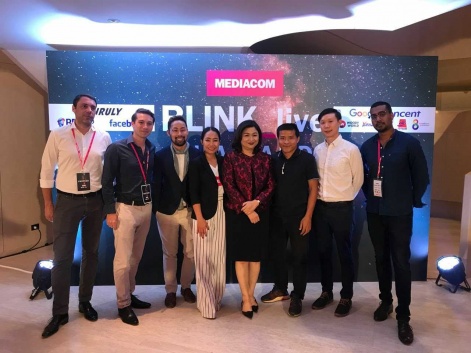We are in a pivotal moment. For decades, no matter the industry, people of colour have suffered through a lack of opportunity and a lack of respect, leaving them stuck playing second fiddle throughout their careers.
Following the tragic killing of George Floyd by a Minneapolis police officer, people around the world have come out in their droves to show support for the Black Lives Matter movement as the community looks to fight for equal rights.
The games industry is no different, and here at PocketGamer.biz we wanted to do our part and help bring attention to the many incredible people of colour that help make up this sector. That is why we are committing to a new long-term regular feature to spotlight these people and their careers.
So, welcome to our new 'POC in Mobile' series, where discussion about finding a place in the games industry, the various challenges faced as a minority, and what truly needs to be done to make games more diverse will be the focal points of conversations.
This week we spoke with Amanotes publishing manager Micke Joseph Moisa on why further creative freedom will lead to better diversity across the industry as a whole.
PocketGamer.biz: Can you start off by telling us about your role in mobile games and what it entails?
Micke Joseph Moisa: While I experienced different roles in my career, I recently joined Amanotes as a publishing manager in their impressive publishing team. My role is to create and handle a portfolio of mobile games. After finding the appropriate partners, we will use our knowledge to support the team on the creation of the game, then "musicalize" it and make sure that it ticks all the boxes for successful market launch.
I hope that my future creations will encounter success and give me a chance to represent Caribbean peopleMicke Joseph Moisa
The next step will be to publish the game on the stores and ensure success through data solutions. The process sounds straightforward, yet might not always go smoothly. As we work with so many exciting ideas every day, the team and I have to work closely with our partners to evaluate the core gameplay and marketability of these ideas.
Why did you want to work in the mobile games industry?
I always wanted to work in the video game industry since I had my first console at five years old. Since then, it was only about how I would achieve that. The mobile industry was booming, thus offering tons of opportunities for a gaming enthusiast like me.
It's a fast-moving industry with an estimated $77 billion of revenue for this year 2020, which makes it very exciting and competitive. It also offers more freedom and versatility than the console industry in my experience.
That's when I realised my dream is not a single-path journey and mobile gaming is one of the best entry doors to this land of creativity. Being able to work with tons of new game ideas and managing the performance of some of the top-charting apps is definitely a dream come true.
How would you recommend people get started in games? Any tools or literature you would advise?
First thing first: Play! Encourage anyone that wants to start in the industry to play diverse games and read industry news to really get a sense of what is going on. Don't be afraid to step out of your comfort zone and try new categories of games.
One of the trending categories is hypercasual games, which I found very interesting as it redefines the market of gaming that people can enjoy the slice of entertainment in a very short amount of time, opposing the traditional image of avid video gamers.

By reading more industry news, you can grasp trends and understand what industry gap there is to leverage. Your next step would be to read about game history and game deconstruction. We tend to think that the industry is full of passionate people that knows everything about games and live by it. The truth is very different. Having strong game knowledge will help you to make a difference during interviews.
Finally, try to foresee what jobs you would like to do and read others' experiences in the same title. Start looking for answers to, what would their daily tasks look like and why it's exciting for them, and that will allow you to understand what to expect.
What did you study (if anything) for your role? Are there any courses out there that you would advise for aspiring professionals?
I studied Economics and Marketing before joining a Master degree in Innovative Video Game Production, which gave me a global vision on all the roles that are involved in game production. Publishing management is a combination of those topics and it helped me tremendously in tackling this role of publishing manager at the moment.
What do you think should be done to improve diversity, not only across the games industry, but across all industries?
Unfortunately, most of the actions that address diversity issues nowadays in the games industry, as well as in others, are intangible or difficult to measure the actual impact. A powerful tool that has been given rise by technology is public testimonies. If you experience a lack of diversity appreciation in your workplace, an open discussion with the team is recommended.
If people are victims of discrimination but are afraid of losing their job, we might want to have a protective law for those people. I also experienced cases where other people of colour would not be willing to share contacts or give help to get into the industry. I'm happy to have come this far, but I think that people of colour should help each other as long as discrimination issues happen.
Coming back to my previous point, I hope that more public universities will integrate video game courses to increase the overall accessibility of the industry for people of colour.
What are the biggest challenges you have encountered since joining the industry?
Earning respect would be the first one. You will most likely join a new company that has a strong amount of experience and success. If you have the ambition to change things, it will usually be a long process of earning respect regardless of who you are. It's a young industry, and people are still trying to find the magic formula, especially on mobile, therefore nobody can be acknowledged as having the magic truth.
At the end of the day, I don;t think people should go the extra mile to prove more than non-coloured peopleMicke Joseph Moisa
The second one would be, the infamous "conflict between creative and business". In my career I often found myself in the middle of this conflict, trying to find the common ground for both sides.
The last one would be people relation. Some companies foster toxic behaviours where politics are all mighty. Therefore, it's important to be aware of that and understand how to navigate in it. However, I'm happy to see healthy companies like Amanotes growing in the right way by acknowledging issues and address them efficiently.
What do you think can be done to help encourage more people of colour to get into games?
I think people of colour don't need to be encouraged to get into games. There's already plenty of experts among them and out there waiting to get in the industry.
However, if the industry starts to offer more creative freedom (independent studios put aside), I would invite all kinds of discriminated people to get into games because it's an incredible storytelling tool. It's a place where they can express themselves and potentially build games that will spread untold stories to a wide audience.
Is there anything that recruiters should be doing differently to address the lack of diversity across not only games development but all industries?
I'd like to try and not give generic answers such as "look at personality and skills over skin colour", as that should be obvious for anyone. In fact, recruitment issues in the game industry are a result of not only discrimination but also a lot of other factors.
The first point would be adjustment capability to the job descriptions as well as profiles they're looking for. Some typical educational backgrounds such as business schools are most likely to be found in the resume of a certain category of the population. It relates to systemic racism.
Unfortunately, there are a lot of talented and passionate people out there that didn't have a chance to prove themselves. Also, representativeness would help. This is something that I see moving in the right direction. I hope that my future creations will encounter success and give me a chance to represent Caribbean people.
Since the recent surge in the #BlackLivesMatters campaign, what changes (if any) have you seen from across the industry to address the issue?
I haven't seen anything on my end but I did witness some changes for some people on LinkedIn. Their job searching suddenly became way easier, as companies were looking for diversity and more open-mindedness for the talent recruitment process. However, I think it will only be a short-term phenomenon if there are no actionable measures taken to seriously address discriminatory issues in the industry.
What advice do you have for other people of colour that are looking at getting into games?
Create your portfolio. There is no better resume than a playable game that you've been working on. Find a team in the same situation than you, like-minded and work together on a project where you all can show your strength.
Whether you're alone, experience or not, you have tools online that are free and that will allow you to create prototypes. Construct and polish your game portfolio to deliver an offer that they can't refuse.
At the end of the day, I don't think people should go the extra mile to prove more than non-coloured people. Companies should find ways to address this issue and create more opportunities for change, not the other way around.

















